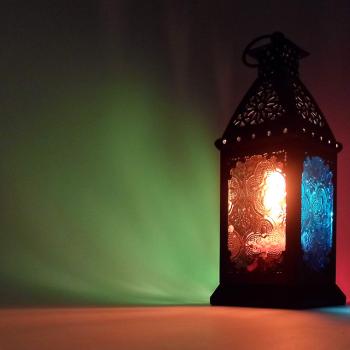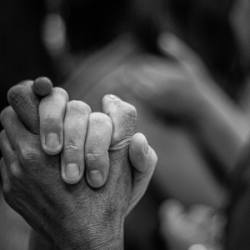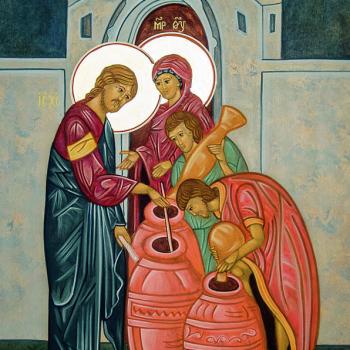"We really like the prayer that you wrote; we would like to publish it," said the editor of a certain liberal publication, "but in order to do that, we need you to make some minor corrections." "Are there any grammatical mistakes?" I asked, embarrassed, willing to confess my limited proficiency in English. "No," came the answer, "you just need to make it more gender neutral."
I was puzzled. The prayer that I wrote was, in my humble opinion, rather gender inclusive. The first section addresses "God of all spirits" (Elohei haruhot lekhol basar), the second one addresses "Shekhinah, Source of mercy" (Shekhinah mekor harahamim), and the third one addresses "Our father, our sovereign" ("Avinu Malkenu"). Can it be more gender-balanced than this? Yet the editor explained that the phrase Avinu Malkenu is problematic, since it encapsulates the image of God as a ruler, and more disturbingly as a father.
I wanted to tell her that I'm well aware of contemporary Reform attempts to find ways to avoid any masculine reference to God. I pray with my Year-in-Israel rabbinic, cantorial, and education students every week at HUC in Jerusalem, using the new North American Reform siddur, Mishkan Tefilah. While doing so I have noticed the numerous changes—and I have come to appreciate many of them—that reflect, in my eyes, deep religiosity and that were done in an artful way. Others, I think, don't really work.
Nevertheless, what I felt eventually was great sadness. "Avinu Malkenu," those heartfelt words that 2000 years ago were cried out by Rabbi Akiva when he pleaded before God for rain (Bavli Ta'anit 25b.), and have been repeated by millions of Jewish believers ever since—have they lost their force? When have they become invalid or even forbidden for us?
But even more troubling—has Reform Judaism, which celebrates pluralism and diversity of opinion, become so dogmatic or "orthodox" that it can't stand the words "Avinu Malkenu"?
For a brief, a very brief and bitter moment, I could not avoid thinking about the Soviet authorities, who forced pages to be torn out of encyclopedias and created ever-growing lists of forbidden books and authors.
Don't get me wrong, I am aware of the educational value of words, whether spoken or written. I refrain from calling my husband "Ba'ali," since the literal meaning of the word is "my master" or "my owner"; I prefer the egalitarian "ishi." I protest when, in academic settings, professors use masculine forms or when I am requested to fill in application forms that use discriminating notions.
I do think, however, that the language of Tefilah, of sacred texts, only remotely resembles colloquial Hebrew or academic writing.
I have come to understand the time of prayer as flashes outside and beyond ordinary time and place. Obviously, these moments are rare and hard to achieve, but these precious instants of Tefilah are a kind of twilight zone, where, at least for myself, the usual rules do not necessarily apply.
Let me try to explain what I mean by using an example. We use the matbe'a (formula) of the Jewish blessing "Barukh atah Adonay . . ." so many times. Do we ever consider the fact that it is grammatically "incorrect"? The sentence starts in the second person—Barukh ATAH -- but ends in the third person—asher KID'SHANU.
Yes, there are scholarly and midrashic explanations for this discrepancy, but the clear fact is that the most central and frequently used utterance in our liturgy is simply incorrect. Does this grammatical inconsistency bother us? Has it ever occurred to anyone that the mistake should be corrected? I hardly think so. Just as I don't expect grammatical purism in my siddur, I don't expect it to be a model for politically correct language.
We know that, while praying, we try to put into words thoughts, feelings, and concepts that are really ineffable. We know that an important component of Tefilah is its symbolic aspects and nature that words just cannot encapsulate. We know that prayers are much larger then the total sum of their words.
We will never suggest (well, at least I hope not) to ban the use of the intimate name with which we address God—Adonai, literally meaning 'my lords'—and we will most likely not campaign for its replacement with "Gvirotay" (literally "my ladies"). We will not do that because we know that prayer reflects our faith, yet it is not a political manifesto.
I do not think that we should stop our eager search for meaningful ways of Tefilah; I am just pleading that we allow ourselves to look also beyond the verbalized words and their literal meaning.
As a female Reform Rabbi in the state of Israel, I am devoted heart and soul to feminist issues. Making our prayers accessible to women of all ages is one of my main personal commitments. This is why it is painful for me that sometimes I think we shoot ourselves in the foot when we arenot willing to understand some of the liturgical terms as metaphors, which can be used and understood in more then one way.




